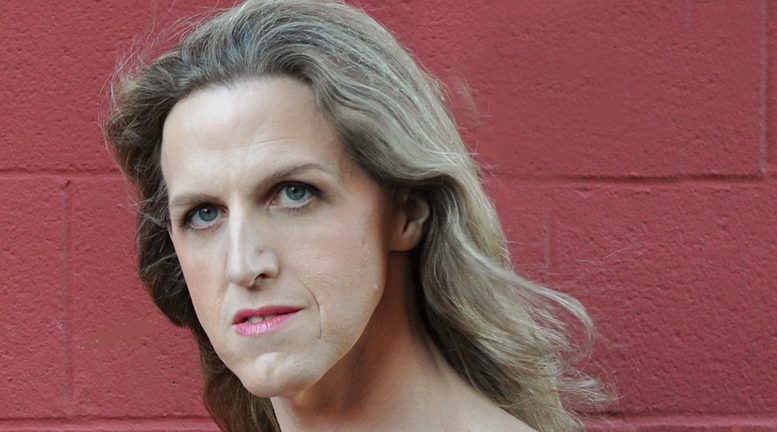What it means to vote Yes On 3 for all, not just trans people
By: Lorelei Erisis*/TRT Columnist—
A column like this is always sort of weird to write. I expect that the vast majority of my readers will be folks who need little convincing to support the point of view I’m about to present. So, let me begin by asking you, oh dear readers, a favor: Share this column.
If there is anyone in your life that you think might need convincing to support trans rights, or even simply not to actively oppose trans rights, send them this column. Also, link to it in groups that you wouldn’t otherwise post trans or LGBTQ content in. Send it to that Uncle. You know the one.
Print it out and bring it to work. Leave it lying around in the break room. Place it under the “People” magazine on your neighbor’s coffee table because we need to do everything we can to get the message, and the vote, out.
Because remember, on Tuesday, November 6th, the people of Massachusetts will be voting on our rights. The rights of transgender people. My rights.
And, now I’m going to start talking to those other people here, the ones we need to reach.
Hi folks! I am a transgender woman, a fact you may have already figured out from the name of this newspaper column. But, I want to make sure I’m clear on that, so we’re all on the same page.
By now, it’s entirely possible you have heard about Massachusetts’ ballot question number 3. It’s the one that’s asking the voters of this state to decide whether to preserve or repeal the Transgender Public Accommodations Law that was passed back in 2016. And, there are just a few things I think you should know, as informed citizens, about this ballot measure.
First of all, and this is important, this ballot issue is not a fight that the transgender community started. We spent a bunch of years going through the whole legislative process of getting a bill proposed, supported, vetted, subjected to public scrutiny, debated, voted on by our elected representatives, passed by both houses of the legislature, and then signed into law by our Republican governor.
I know, because I was personally there at almost every step of the way. I even earned myself an entire page on the website of a local right-wing organization devoted to how “evil” I am for being one of the people “pushing” the “bathroom bill!” That happened mainly because I had the gall to suggest, as a private citizen and transgender woman on a local PBS news program, that maybe it would be nice if I could have basic protections in public spaces. And, that my opponent in the “debate,” one of that organization’s hired lawyers, was perhaps trying to use scare tactics to get folks stirred up and afraid because that was all they really have.
That’s a point worth repeating. Because by now you may have seen some of our opponent’s ads using those same scare tactics, playing at your desire to help protect women and children. Though they may not come right out and say it, they want you to make the false connection in your heads between trans people and sexual predators. They don’t want you to consider that repealing this law would be taking protections away from thousands of your friends, neighbors, co-workers and family members. They want you to believe you are making your community safer.
Yet, you most certainly would not be. If anything, repealing this law would put many people in danger. That’s why when we were working to pass this law we received the support of a great number of women’s groups and youth organizations and why many of those same organizations stand with us still to fight the repeal.
This law makes all of us safer because it protects vulnerable members of our community from abuse and harassment, many of whom, you guessed it, are in fact, women and children.
While I’m here clearing up misconceptions, let me directly address that whole, “bathroom bill” thing. Yes, the transgender public accommodations law does cover bathrooms and locker rooms. It’s true and honestly necessary. Transgender people gotta pee, just like everyone else. That’s not going to change, law or no law. To borrow one of our opponent’s favorite phrases, it’s just simple biology.
Additionally, I’m a really super-visible transgender woman myself. I’m 6’4”, the same height as Abraham Lincoln. It may shock you to know that I’ve been using public restrooms with absolutely zero problems for a solid decade now. If anything, most other women I encounter are almost overwhelmingly friendly! They often want to chat and I’m just there to pee and maybe fix my makeup—get in and get out. Basically, despite what you are being told, out in the real world, it’s a non-issue.
Where it would become an issue is if, as a woman, I was suddenly forced to use men’s restrooms and locker rooms. That can get quickly dangerous. For reason, I doubt I even need to spell out.
But, the part of this our opponents don’t want you to think about is that when we refer to, “public accommodations” we mean all public spaces. Literally, anywhere outside your home or workplace is considered to be a public accommodation. So, bathrooms and locker rooms, yes, but also busses, courthouses, restaurants, public parks, stores, the DMV, etc. All of those are places that, if this law is successfully repealed, it will be possible, once more, to exclude transgender people, to kick us out, harass and even arrest us. All for simply trying to go about our daily lives.
Not to belabor the point, but that means, I personally could be denied service at a restaurant. I could be forced off a bus. I could be arrested for picnicking in the park with my family. I would be spotlighted and excluded, made a second-class citizen in my own state.
Also, it is very much worth noting that despite what our opponents want you to think, in the two years since we passed these protections, and the many years since a number of smaller municipalities around the state and country passed similar protections, there has been no increase in incidents. Will they give you examples of terrible things that have happened? Yes. Given any population group, there will always be some awful people doing bad things. But those are things that can, and unfortunately probably will still happen with or without this law.
To put this more succinctly, in the way those who seek to repeal the law would rather you didn’t know, anything that was inappropriate or illegal in a bathroom, locker room, or any public space, is still inappropriate and illegal. Those are the facts. This law has done nothing but protect those who are prepared to be good, law-abiding citizens and decent members of our communities. It does not, in any way, provide protection or excuses to those who would engage in predatory behavior or illegal acts. The law only protects those who are genuinely in need of this protection—people whose lives and safety will be actively in danger without it.
Okay, but maybe that’s not yet enough to convince you to vote Yes On 3. Well, perhaps you might want to look to North Carolina and the effects that their own anti-trans measures have had on their economy, the boycotts that ensued, and the lost business that resulted as a consequence.
This is a big reason why the Yes On 3 campaign has such strong support from so many prominent members of the business community here in Massachusetts. They don’t want to see a repeat here of what happened to North Carolina.
Or, perhaps you would like to know our opponents hope that in the absence of clear information, you will automatically vote, “No” on three. Because studies show most voters assume that, when faced with potentially confusing ballot questions, a “No” vote is the one that will preserve the status quo. They are hoping you will vote their way accidentally, even if you have no problem with transgender people whatsoever.
Also, you should probably know that the number of signatures that were required to get this controversial measure on the ballot was a shockingly small percentage of Massachusetts’ residents. The actual number is fewer people than can fit in Fenway Park.
So, no, we did not start this fight. We already went through all the proper channels, jumped through all the expected hoops, and worked quite within the system to do our reasonable civic duty to get these protections enshrined in law. Frankly, most of us would much rather have spent the last two years getting on with our lives, working to improve our communities and spending time with our families.
But a small number of people, who just cannot abide the idea of transgender people having the same basic rights and protections as anyone else, have decided that they need to stir everyone up again. They are asking you, the voter, to decide whether I should be able to have the respect and dignity of my basic human rights protected by law, a law that was popularly passed by your elected representatives; the people you already entrusted, by your votes, to do this work.
However, this goes much further than Massachusetts. There are much larger outside organizations watching this fight very carefully and are prepared to pour money into the coffers of the people behind this fiasco. Because, if they are successful in this, if our opponents do manage to get this law repealed, then that will set a very scary precedent.
If they can show that the rights of a minority group can be taken away here in famously liberal Massachusetts, then they can go after the rights of other marginalized groups across the country.
If they can remove protections for transgender people here, then they can easily attack the rights of other LGBTQ folks in far less open-minded parts of the country. And, once down that road, it’s a very slippery slope. That, we cannot allow. Not here. Not in America. Certainly, not in Massachusetts.
We did not start this fight. But together, by voting Yes On 3, maybe we can finish it.
Slàinte!
*Lorelei Erisis is an actor, activist, adventurer and pageant queen. Send your questions about trans issues, gender and sexuality to her at askatranswoman@gmail.com.







